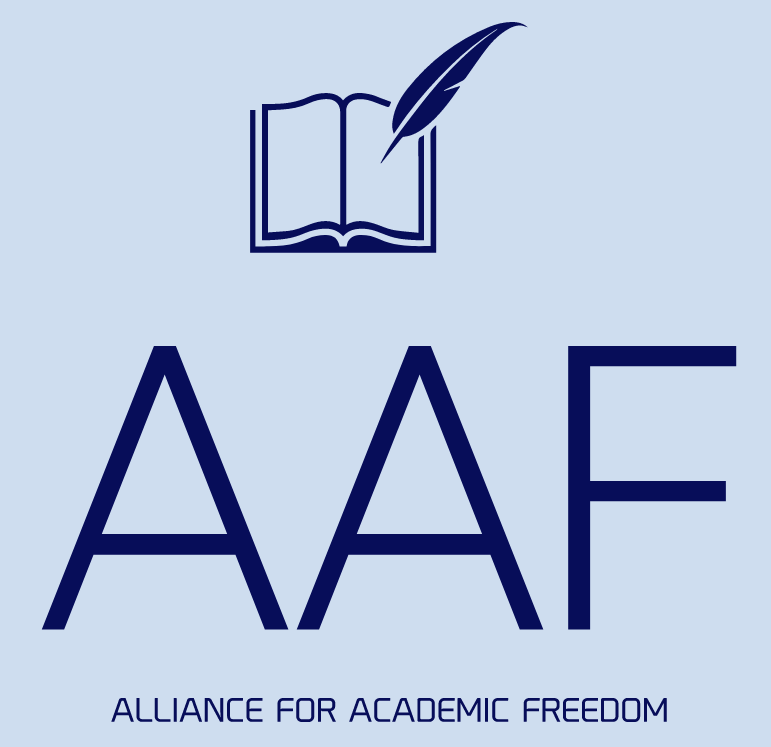THE UNCONSCIONABLE EXCLUSION OF ZIONISTS FROM CAMPUS GROUPS
This summer, two Jewish undergraduates at the State University of New York at New Paltz, Cassandra Blotner and Ofek Preis, charged in a complaint to the Department of Education’s Office for Civil Rights that they were expelled from a student group devoted to helping sexual assault survivors because they support Israel, alleging a violation of Title VI of the 1964 Civil Rights Act. Whether or not this case constitutes a Title VI violation, the Alliance for Academic Freedom expresses its deep concern about the incident. The exclusion of students and student groups from campus organizations, projects, and other opportunities because of their support for Israel represents an unconscionable development on North American campuses that deserves greater attention and a more emphatic response from university leadership everywhere.
Discriminating against students on the basis of their views about Israel is becoming increasingly common on college campuses. Most recently, a group of student organizations at the University of California, Berkeley School of Law announced a decision to bar all speakers who support Israel. Pro-Israel students and student groups have been similarly excluded from opportunities at other universities in recent years.
Within limits, student groups have the right to define their own purpose or mission and to articulate political principles they subscribe to. But the exclusion of supporters of Israel from groups concerned with matters like sexual assault, or from whole arenas of university life, is wrong for at least three reasons.
First, although these exclusions may purport to rest on a principled political difference unconnected to religion, ethnicity, or nationality, in practice they amount to the denial of opportunities to Jews and Israelis, the great majority of whom do not wish to—and should not have to—renounce the Jewish state. These policies thus have a disparate effect on Jews, even if Jews are not explicitly targeted. As Berkeley Law dean Erwin Chemerinsky, a leading civil libertarian, explained, “To say that anyone who supports the existence of Israel — that’s what you define as Zionism— shouldn’t speak would exclude about, I don’t know, 90 percent or more of our Jewish students.”
Second, the groups and causes from which Israel supporters are barred often have nothing to do with Israel, likely making any consideration of Zionism in such contexts irrelevant. A student organization devoted to sexual assault, or any other such issue, must, on moral and ethical grounds, welcome members regardless of their views about the Middle East.
Third, the argument for excluding Zionists from avowedly progressive organizations, institutions, or alliances amounts to denying the liberal (or progressive) core of Zionism. Modern Zionism emerged and developed in the late 19th and early 20th centuries from ideas of universal human rights, equality of all peoples, and self-determination. Certainly, most North American students who support Israel do not consider Zionism and progressivism to be incompatible. That some people today espouse different and narrow definitions of Zionism and progressivism that place those philosophies in conflict should not be allowed to deny Jews’ or Zionists’ own understandings of their political commitments and values.
For all these reasons, we urge university leaders to speak out against barring supporters of Israel from full participation in campus life, on the same terms as anyone else.
The SUNY New Paltz case also raises another concern about academic freedom. According to the students’ complaint, their expulsion from the sexual-assault group was compounded by a campaign of harassment and threats, including a death threat. Academic freedom requires the toleration of robust argument, even of the kind that can cause offense. But when threats become so pervasive and persistent as to instill well-grounded fear for individuals’ physical safety, it can infringe on the academic freedom of the persecuted. Academic freedom includes the right of students to learn, free of threats.
Finally, it is worth reiterating that the hounding of individuals online, including the issuance of violent threats, is always unacceptable. In August, Carson Elm-Picard, a staffer at a University of North Carolina student newspaper, withdrew an opinion piece he had written assailing UNC students who study in Israel after, he claimed, his mother received “hateful messages” and he feared for her well-being. While the paper’s editor-in-chief was within his rights to critique Elm-Picard’s piece—a legitimate form of counter speech—harassment of the author or his family deserves unequivocal condemnation. A greater understanding of the complexities of the Israeli-Palestinian conflict will only be achieved if contending perspectives are debated freely, rationally, and civilly, without fear of either physical harm or official punishment.
ON BEHALF OF THE AAF EXECUTIVE COMMITTEE: SUSANA CAVALLO, DAVID GREENBERG, REBECCA LESSES, JEFFRY MALLOW, STAN NADEL, CARY NELSON (Chair)
Alliance for Academic Freedom